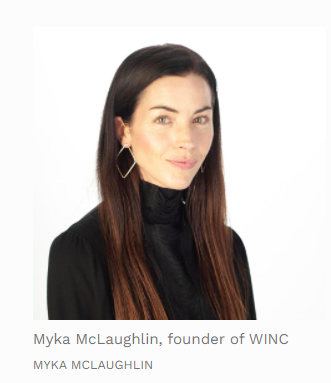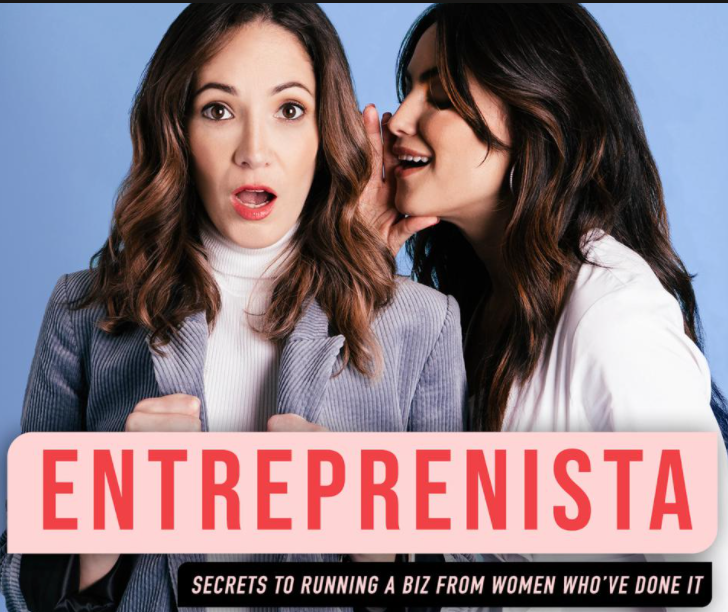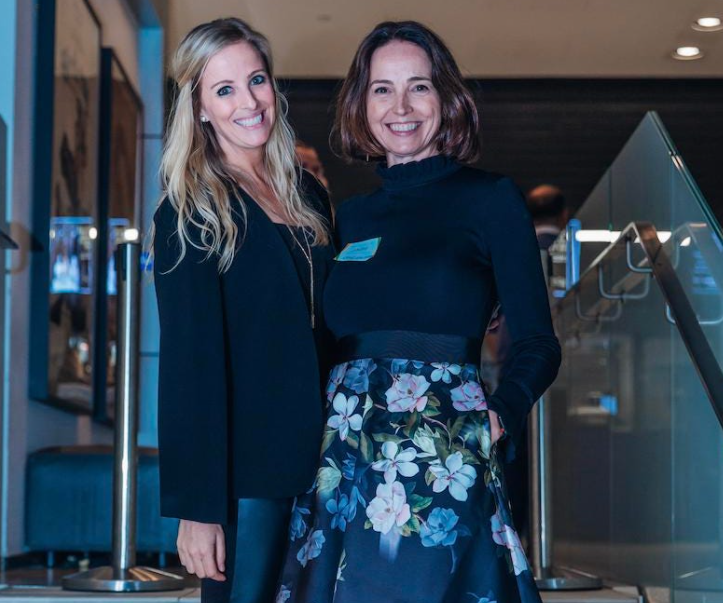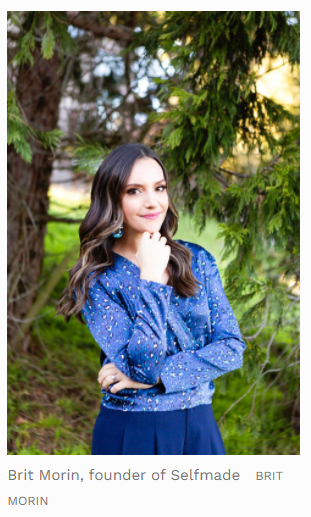After the 2008 financial crisis, female entrepreneurs emerged in record numbers and helped the U.S. economy recover. Once again we’re seeing a surge of new businesses coming out of the pandemic. According to the U.S. Census Bureau, there had been more than 1.5 million new business applications as of mid-December 2020.
A research survey from Gusto found that approximately 40% of female entrepreneurs launched their businesses as a direct result of the pandemic. A rise in female founders is a good thing for women — and for society: Women are 1.17 times more likely than men to found a business that doubles as a social venture.
To learn more from this growing demographic, I reached out to a few fellow founders who have centered their business model on helping other women succeed. Here’s what they had to say.
The Entrepreneurial Revolution
Brit Morin thinks we’ll look back at the 2020s as the “entrepreneurial revolution,” because it has never been so easy to start a company and build an audience so quickly. “Covid has taught us that we desire both a more flexible schedule and the right to work remotely. Entrepreneurship enables both of these things, especially for digital businesses,” she said. “From website automation tools like Shopify to the no-code platforms that help you build apps, you don’t need an engineer to get started. With social media and services like Mailchimp, you don’t have to pay money to acquire and engage an audience.”
Morin, CEO and founder of Brit + Co., created Selfmade in response to the pandemic job losses she saw disproportionately affecting women — specifically women of color. The 10-week digital entrepreneurship course designed for women features Gwyneth Paltrow (founder and CEO of GOOP), Bozoma Saint John (CMO of Netflix), and other amazing women in business. Morin secured partnerships with Office Depot to fund more than 600 Selfmade scholarships for aspiring entrepreneurs, and with Block Advisors to support those with existing businesses.
“MBAs are often prohibitively expensive, and the overwhelming majority of women don’t have the resources or the time to spend on one. Selfmade gives students what an MBA does—mentorship, resources, a community and more, including access to some of the top female entrepreneurs in the country,” said Morin.
The Alternative MBA
As founder of WINC (Women in Community), Myka McLaughlin has witnessed many aspiring entrepreneurs “swirling in ten thousand things they should do or could do. They fret over a logo, over the business name, or the design of their web site, without even knowing what their business model is yet.”

She described attending a women’s community event 20 years ago, before people were even talking about female entrepreneurship. “Most of the women were self-employed, one a psychotherapist, another a yoga teacher…another a wedding dress designer, yet they didn’t think of themselves as business owners, and they had businesses.” Traditional business school wasn’t resonating with them, but many needed help to grow their companies.
That is what inspired McLaughlin to found WINC, which teaches women financial literacy and how to use numbers to track, benchmark and forecast. She said the missing link was basic business skills and a shame in getting “financially naked.” “Many of these business owners thought it was worse than it actually was, and that led to an enormous amount of energy drain. When we think with numbers to create the things we want, we go from being terrified to seeing our dreams take shape.”
Since WINC’s launch, McLaughlin has helped more than 15,000 women. Learn more about WINC’s Revenue Revolution, a free, two-day summit for female entrepreneurs.
Listening to Learn: The Power of Podcasting
Stephanie Cartin and Courtney Spritzer founded Socialfly to help brands resonate with women on social media. As the agency achieved success, they had female founders reaching out to them weekly, wanting to meet for coffee and to pick their brains. The same question kept popping up: How did you grow and scale your business without any funding?
In 2018, they launched the Entreprenista podcast to help women leaders on a grander scale. “We learn from each other’s mistakes and successes so that we can give ourselves the best chance to make it,” said Cartin.The most common mistake they’ve heard is not trusting your gut.

ENTREPRENISTA
Another common mistake, according to Cartin, is not trademarking your IP. “When you first start your business, always do a trademark search before you buy domains and create logos. Once you know the trademark is clear, invest in owning it. Owning your IP and working with a great business attorney you trust is very important.”
Of the many episodes they’ve hosted, Cartin’s conversation with Jill Koziol, founder of Motherly, really struck a chord. “We were both diagnosed with multiple sclerosis when we were first launching our businesses and I could truly relate to the challenges she experienced. She shared such valuable information about the process of raising money while balancing life with a growing family, and a startup. She’s an inspiration.”
Cartin said podcasting can be an incredible marketing tool for female entrepreneurs, and that being able to share your true journey helps build a deeper connection to your audience.
And this past year, after hearing from so many women who were working remotely and missed the power of connection, their podcast evolved into their Media platform, Entreprenista.com and their membership community, The Entreprenista League.
Power of the Pack
“Women thrive off mentorship, off connection and community,” shared Kelly McGonigle, who co-founded Ladies Who Launch (LWL) with Sarah Friar eight years ago when they worked at Square. It initially began as an event to celebrate International Women’s Day, but it quickly grew as they realized how many female small business owners long for opportunities to meet other entrepreneurs.
The local meetups presented organic cross-selling opportunities. For instance, one woman who owned a bakery met another who owned a coffee shop, and they discovered a way to collaborate and scale their business. McGonigle and Friar had tapped into something, eventually going on a roadshow around the world. Originally sponsored by Square, they spun off to become their own entity as a not-for-profit.

JACK GHAZAL
“Every event we do is free. We never wanted finances to be a barrier to entry for women who need access to these educational resources,” said McGonigle.
The LWL hub includes everything from marketing plans and social media templates to inspirational stories and tips from other entrepreneurs. They also host virtual summits and in 2020, created the Launch Program to support women-led businesses in the U.S. who had been negatively impacted by Covid-19.
For McGonigle, she finds inspiration in the ability to fund women directly. She shared the story of Irene Li, co-founder of Mei Mei, who transformed her Boston-based dumpling shop into a neighborhood bodega during the pandemic to provide her community with much-needed essentials like masks and toilet paper. Today, Li is teaching virtual cooking classes and looking into shipping her dumplings around the world, an idea sprung from a lightbulb moment that came straight out of the pandemic.
Article Credit: forbes
